Argentina
Argentina

Organizations concerned by Mendoza Supreme Court rejecting their Participation while allowing that of the oil industry in litigation over fracking
The Mendoza Supreme Court’s differential treatment occurred in a lawsuit over the authorization of fracking, or hydraulic fracturing, for extracting oil and gas from the Vaca Muerta formation in the Argentinian province. Civil society groups express concern about the Mendoza Supreme Court’s refusal to receive information about the dangerous impacts of using fracking to extract oil and gas on indigenous peoples and the environment in Mendoza. The Court rejected the participation of seven organizations--including an organization of the Mapuche Indigenous People and both Argentinian and international groups on human rights and the environment--in a case that will impact the regulation of the oil and gas industry in Mendoza.The court has instead shown preference toward the fossil fuel industry, having allowed the participation of several groups representing the interests of oil companies in the same court case.The court is weighing a decision involving the authorization of hydraulic fracturing--also known as fracking--to extract oil and gas from the Vaca Muerta formation in Mendoza. Although fracking has not been widely used in Mendoza, the technique has caused public health and safety risks in other countries because of its impact on the environment.The organizations requested to participate in the case as "Friends of the Court" (amicus curiae). This is a common practice permitted in Mendoza and many countries around the world that allows people not otherwise connected with litigation to share information with the courts in cases that affect the public interest.One justice dissented from the Supreme Court's decision, criticizing that this ruling "is far from the level of listening that ought to demand the judge's attention in the resolution of cases of undoubted social interest, such as the one at issue here." Furthermore, the justice pointed out that "[t]he entities requesting this Court to grant them participation as amicus, have vast experience and specialization in environmental issues."So far, the Supreme Court has rejected the interventions of the following organizations: Organización Identidad Territorial Malalweche (Mendoza); Xumek (Mendoza); Centro de Estudios Legales y Sociales (national); the Interamerican Association for Environmental Defense (international), the Center for International Environmental Law (international); Earthjustice (international) and the Environmental Law Alliance Worldwide (international). Statements from the organizations Ana Laura Piccolo, executive director of XUMEK:"At Xumek, we are concerned by the provincial Supreme Court’s repeated rejections of the participation of civil society organizations through the figure of the 'Friend of the Court.' The organizations that have come forward to collaborate have established experience in the subject matter of the case and we make our contributions from a serious and objective perspective, in accordance with the technical and legal knowledge and expertise we possess. In addition, we have participated as amicus curiae in numerous judicial proceedings, both local and international". Ñushpi Quilla Mayhuay Alancay, attorney in charge of the Indigenous Peoples Area of XUMEK:"As expressed in the dissenting vote, ignoring all the voices of civil society in a case of high social complexity affects the dialogue between the judiciary and the citizens, thereby weakening the democratic process in cases of social interest where the human rights of society can be affected". Erika Schmidhuber, attorney with the Center for Legal and Social Studies (CELS):"We consider it essential that the province complies with international human rights standards on free, prior and informed consultation with indigenous peoples for development projects in their ancestral territory, regardless of whether or not that territory is formally recognized. The Argentine State has already been condemned internationally for not complying with these standards. It is necessary for the Mendoza court to evaluate the arguments we have presented as they reflect the obligations that Mendoza must comply with." Jacob Kopas, attorney at Earthjustice:"Strong scientific evidence from other countries shows that fracking generates serious contamination risks, particularly by leeching toxic chemicals into nearby water supplies. It is essential that the Supreme Court of Mendoza take this evidence into consideration along with the support for fracking it has received from groups that profit from oil extraction." Sofía Barquero, attorney with AIDA's Ecosystems Program:"Our interest in this case stems from our desire to ensure that environmental protection and the rights of indigenous peoples are an integral part of any decision that may affect these communities. In that sense, we respectfully call on the Court to reconsider its decision and allow for the inclusion of civil society voices in this judicial process. We trust that the Court will take into consideration the importance of listening to all stakeholders in this case." Upasana Khatri, attorney at the Center for International Environmental Law (CIEL):"Fracking poses long-term environmental and health hazards that outlast production. It is essential that the Court hears from civil society experts on the evidence of such harms and the legal duty to prevent them - not just from industry actors with a stake in fossil fuel production - to ensure an informed decision on the risks and regulation of fracking in Mendoza."Press contactsOrganización Identidad Territorial Malalweche, Werken Gabriel Jofre, +54 2604592679XUMEK Asociación para la promoción y protección de los derechos humanos, Ñushpi Quilla Mayhuay Alancay, +54 9 2616807798CELS, Martina Noailles, [email protected], +54 9 11 6562-6566AIDA, Víctor Quintanilla, [email protected], +521 5570522107Earthjustice, Jacob Kopas, [email protected], +1 5862924603CIEL, Press Office, [email protected]
Read more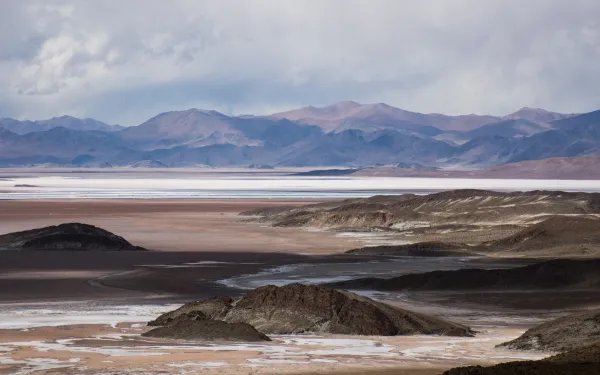
AIDA petitions Argentine court for protection of human rights in lithium mining case
In a legal brief supporting the litigation of the indigenous communities of the Puna in Argentina, we ask the Court of Justice of Catamarca to cancel the permits for two mining projects to avoid irreversible environmental impacts on the territory of the Salar del Hombre Muerto. We also ask that it order a cumulative and comprehensive environmental impact assessment that meets international standards and guarantees the participation of the communities. In support of the lawsuit filed by the Atacameños del Altiplano Indigenous Community, the Interamerican Association for Environmental Defense (AIDA) filed an amicus curiae or "friend of the court" brief before the Court of Justice of Catamarca, requesting that the national government and the government of the province of Catamarca, in accordance with their international obligations, protect the rights of local communities against the cumulative environmental impacts of lithium mining projects in the territory and watershed of the Salar del Hombre Muerto."The accumulation of lithium mining activities in the Salar del Hombre Muerto has exacerbated water stress in the province and today threatens to affect the health of indigenous communities due to the use of large quantities of water and polluting chemicals," said Yeny Rodríguez, Senior Attorney at AIDA. "In application of the principles of prevention and precaution, it is imperative that the State take measures to avoid further impacts; if it fails to do so, it may incur international liability for the damages caused."The brief provides grounds for the application of justice and for the defense of the rights to a healthy environment, to water and to the life project of the communities. The document shows that the national and provincial governments have an obligation under international treaties and standards, such as the American Convention on Human Rights, the Convention on Biological Diversity, and the Convention on Wetlands, among others, to use an environmental assessment that addresses comprehensive and cumulative impacts to authorize existing, proposed, and related mining projects.The writ was filed as part of the amparo action filed by the Atacameños del Altiplano Indigenous Community in August 2021. In it, they asked the Court of Justice of Catamarca to revoke the authorizations granted by the environmental authorities to the projects "Fénix Project Expansion" of the company Livent and "Sal de Vida" of the company Galaxy Lithium S.A., until a proper environmental impact assessment is carried out.In a decision released last March 13, the court ordered the provincial government, as a precautionary measure, to refrain from issuing new permits until a "cumulative and comprehensive" environmental impact study is conducted for all lithium mining projects being developed in the area, and to guarantee free access to information and free, prior and informed consultation with communities for all projects. However, the court did not accept the request to stop lithium mining in the area, so the socio-environmental risks remain.In this sense, in order to protect the ecosystem and not irreparably affect the life project of the indigenous peoples, AIDA presented arguments to the Court of Justice of Catamarca in support of the communities' requests:In application of the international environmental principles of prevention and precaution, revoke the permits for the projects identified in the lawsuit and for all projects in the Salar Basin until an environmental assessment is carried out in accordance with international law.Order the competent authorities to carry out a cumulative and comprehensive environmental impact assessment, respecting at all stages the right to consultation or consent, as well as the right to timely and effective environmental participation of the Atacameños del Altiplano Indigenous Community. "AIDA reiterated before the Court that the Inter-American Court of Human Rights has ruled that the Environmental Impact Assessment is the measure that guarantees the subsistence of indigenous communities in the face of the restrictions imposed by the concessions granted in their territory," said Rodríguez.The brief points out that in this case — given that lithium mining and other projects have already caused serious environmental degradation and affected the water carrying capacity of the ecosystem, in addition to jeopardizing the community's livelihood project — the state had an obligation to conduct a cumulative and comprehensive environmental impact assessment.Due to low rainfall and water evaporation, the Salar del Hombre Muerto — an Andean wetland located in northwestern Argentina, between the provinces of Catamarca and Salta — has a negative natural water balance, which has been exacerbated in the last 27 years by lithium mining. This activity requires the extraction of large quantities of brine (water with a high salt content) and fresh water (surface and groundwater).The region of the Salar Basin has been inhabited for more than 10,000 years by indigenous communities who have a special relationship with the environment that guarantees their individual and collective survival, their culture and their traditions. As a result of lithium mining, their members have had to change their traditional practices and have also suffered water shortages and significant animal losses.The Fénix mining project has diverted the Trapiche River to the point of drying up its last stretch before it reaches the salt flats. And the expansion of mining activities in the area threatens to dry up the Los Patos River as well.In the development of the projects mentioned in the lawsuit, the companies did not provide information to the communities, did not hold public hearings with their participation, and did not carry out a process of free, prior and informed consultation.Press contact:Víctor Quintanilla (Mexico), AIDA, [email protected], +521 5570522107
Read more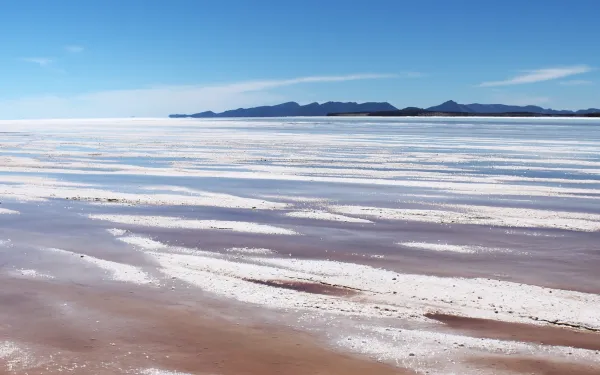
UN takes major step toward prioritizing justice regarding transition minerals
The United Nations’ Critical Energy Transition Minerals Panel issued a series of recommendations and voluntary principles aimed at ensuring equitable, fair and sustainable management of these minerals. The guidelines are aimed at governments, industry and other stakeholders in energy transition processes.This comes at a time when the global renewable energy movement, which seeks to reduce emissions that exacerbate the climate crisis, has highlighted how the environmental and social costs of transition minerals extraction fall disproportionately on local communities and ecosystems.Claudia Velarde, co-director of the Ecosystems Program of the Interamerican Association for Environmental Defense (AIDA), said: “For Latin America, the recommendations and principles are very important, since a large part of the reserves of resources essential for the energy transition are in the region, in complex territories rich in biological and cultural diversity.Significantly, the panel places human rights and justice at the center, recognizing the complexity of the energy transition and the inequality between countries in the global South that host the minerals and those in the North that need them for their own transition.To move forward with justice, the energy transition must break with the development status quo, include perspectives from the global South, respect the human rights of local communities, and recognize ecosystem boundaries.While there is still a long way to go to achieve a truly just and popular energy transition for Latin America, we hope that this contribution will be a step in that direction.” The recommendations and principles are contained in a report in which the Panel explains how the transition t to renewable energy can be based on justice and equity, promoting sustainable development, respect for people, and protection of the environment in developing countries.The Panel proposes seven voluntary guiding principles, based on standards, commitments and legal obligations established in United Nations texts:Human rights must be at the core of all mineral value chains.The integrity of the planet, its environment and biodiversity must be safeguarded.Justice and equity must underpin mineral value chains.Development must be fostered through benefit sharing, value addition and economic diversification.Investments, finance and trade must be responsible and fair.Transparency, accountability and anti-corruption measures are necessary to ensure good governance.Multilateral and international cooperation must underpin global action and promote peace and security. Read the panel report: https://www.un.org/sites/un2.un.org/files/report_sg_panel_on_critical_energy_transition_minerals_11_sept_2024.pdfLearn more about panel: https://www.un.org/en/climatechange/critical-mineralsPress contact:Víctor Quintanilla (Mexico), [email protected], +5215570522107
Read more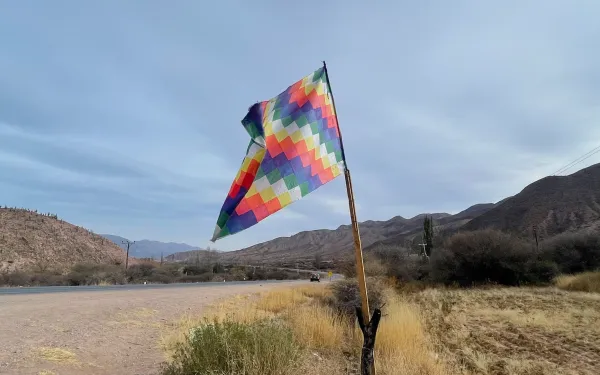
Argentina: the scramble for lithium threatens the rights of Indigenous Peoples in Jujuy
International civil society organisations with extensive experience in the defence of the environment and human rights present the conclusions of an observation mission to the Argentinian province of Jujuy in August 2023 following the constitutional reform approved in June of the same year, which facilitates lithium extraction. Paris and San Salvador de Jujuy. In a report published today, ten international civil society organisations with extensive experience in human rights and environmental issues warn that the lack of prior consultation of the 11 Indigenous Peoples of Jujuy in the approval process for the reform of the provincial constitution is incompatible with international human rights and environmental standards.The report also denounces that the new Jujuy Constitution authorises productive activities on public lands, which opens the door to the implementation of extractive projects in Indigenous ancestral territories, without guaranteeing prior, free and informed consultation with the communities. It also approves the large-scale use of water, which facilitates the use of an essential resource for the survival of Indigenous Peoples for the exploitation of lithium, an activity with a high water footprint.The constitutional reform process is framed in a context of mining deployment in the high Andean wetlands of Jujuy, whose watersheds are located in the area known by the mining industry as the "lithium triangle", located on the borders of Argentina, Bolivia and Chile. This area is so named because it is the largest, most easily extractable and economically profitable lithium reserve in the world."We denounce the permanent and disproportionate restriction of the right to social protest introduced by the Jujuy constitution - in particular the general prohibition of road and street blockades, which are not only a legitimate form of peaceful demonstration, but are also protected by international law," the organisations point out.The report also highlights the testimonies of victims of police repression, who suffered arbitrary detentions and serious physical injuries caused by the excessive and unjustified use of force. It also documents the cases of protesters who are currently facing arbitrary and disproportionate criminal proceedings for participating in and promoting public demonstrations against the constitutional reform.In light of the findings presented in the report, the organisations:Request compliance with the international obligations of the Argentinian State to guarantee the protection of the collective property of Indigenous communities over their ancestral territories, as well as to guarantee the right to water intended for human consumption and the reproduction of life.Urge the authorities to refrain from promoting regulations that restrict the ways, places or times in which citizens can exercise their right to demonstrate publicly.Make an urgent call to the judiciary to assess, based on a rigorous examination of international human rights standards, the probable unconstitutionality of the approval process for the reform and its contents. Relationship between the events in Jujuy and the reforms promoted by Javier Milei’s governmentThe analysis offered in the report on what happened in Jujuy is especially relevant in the current national context because President Javier Milei’s national government has followed a similar line to the trend observed in Jujuy of promoting reforms that deepen an extractivist model in protected ecosystems of the country. This occurs while eliminating frameworks for the protection of human and environmental rights and facilitating the repression and criminalisation of legitimate protests, as detailed in the report.Through Decree of Necessity and Urgency No. 70/2023, President Milei repealed the Land Law (26.737) on 20th December 2023, eliminating restrictions aimed at preventing land grabbing by foreign investment projects. In addition, the "omnibus" bill proposes to repeal environmental protection laws to facilitate economic activities in ecosystems such as native forests and glaciers.These measures, similar to those implemented in Jujuy, were accompanied by disproportionate restrictions on the exercise of the right to protest. For example, on 14th December 2023, the executive approved the "protocol of anti-picketing action", which considers any demonstration that interrupts or decreases the movement of people a flagrant offence, requiring police intervention. Read the report
Read more
Court decision stops new lithium mining projects in Argentine salt flat, sets regional precedent
On March 13, the Supreme Court of Argentina’s Catamarca province ordered a halt on authorizing new lithium mining projects around the Salar del Hombre Muerto, in the department of Antofagasta de la Sierra. The high provincial court established that all projects must comply with the free, prior, and informed consultation of affected communities, thus granting the injunction filed by Román Guitián, Cacique of the Atacameños del Altiplano Indigenous Community.It is one of the most important rulings of recent times regarding care for nature and the protection of the rights of traditional communities.The court ordered the providence’s Ministry of Mining and the Ministry of Water, Energy and Environment to "refrain from granting new authorizations or environmental impact statements with respect to any work or activity" in the area until an environmental impact report with two fundamental characteristics is completed. The first is that it must be "cumulative and integral," covering the entire salt flat and especially the Los Patos River, which is in the same salt flat. The second is that it must consider the total impact of the companies that have applied for water use and extraction permits, and their potential to transform the environment in the same geographical area.Lithium mining in Antofagasta de la Sierra began in 1997 by the multinational company FMC, currently operating as Livent. The local communities denounced that the river and the Trapiche Valley were drying up because of the mining activity.The Alliance for Andean Wetlands (Alianza por los Humedales Andinos) celebrates this achievement of the Atacameños del Altiplano Indigenous Community and the Asamblea PUCARA (Pueblos Catamarqueños en Resistencia y Autodeterminación).The same model of lithium mega-mining that the Catamarca Supreme Court's ruling points to is being reproduced in the Puna region of Chile and Bolivia. In this sense, the sentence is an important precedent for the protection of the environment and affected communities, which should be replicated in all the regions of the continent affected by this extractive model.Governments must take measures to provide the necessary security guarantees for the territorial defense of local communities demanding the fulfillment of their human and environmental rights, both in Argentina and in other countries. Quotes from Alliance membersClaudia Velarde, co-coordinator of the Ecosystems Program of the Interamerican Association for Environmental Defense (AIDA)"What happened in Catamarca is a historic milestone for the protection of water, territory and life in Latin America. The Court's decision confirms that the concept of the cumulative impact of an extractive activity is fully valid and a transcendental aspect of environmental management. It also clarifies that any damage to the environment that may result in a violation of the right to life or personal integrity must be considered significant damage. It is a relevant precedent in every sense and a strong message: national and international environmental regulations must be respected, environmental impact assessments must be strategic and cumulative, the right to environmental participation must be guaranteed, and the energy transition must be just." Ramón Balcázar, executive director of Fundación Tantí and co-coordinator of the Plurinational Observatory of Andean Salt Flats (OPSAL)"This ruling is the result of years of work and shows the importance of articulating knowledge and legal strategies for the defense of territories from a wetland perspective, setting a precedent that should be extended to the entire region for a cumulative assessment of projects, not only lithium, but also metallic mining and the impacts of climate change. Unfortunately, our colleague Román Guitián was the target of death threats after learning of the ruling, in a country like Chile that has ratified the Escazú Agreement. In this sense, we must categorically reject any form of violence against the defenders of the Andean salt flats, as well as the political advantage that institutions linked to the greenwashing of mining have tried to take from such a complex situation." Cristian Fernández, coordinator of the Legal Affairs area of Fundación Ambiente y Recursos Naturales (FARN)"The recent ruling of the Court of Justice of Catamarca, ordering the preparation of a "cumulative and integral" environmental impact study for all lithium projects being developed in the Los Patos River basin, and requiring the local government to refrain from issuing any new permits or authorizations for the activity, represents a milestone in the environmental jurisprudence of our country. It consolidates the path started almost 15 years ago by the Supreme Court of Justice of the Nation when, in the "Salas Dino" case, it demanded a cumulative impact study against the deforestation of native forests in Salta. In doing so, the Catamarca Court set a precedent that could be applied to the ecosystem damage suffered by the provinces of Salta and Jujuy due to the cumulative impact of numerous lithium projects in Salinas Grandes and Guayatayoc Lagoon."
Read more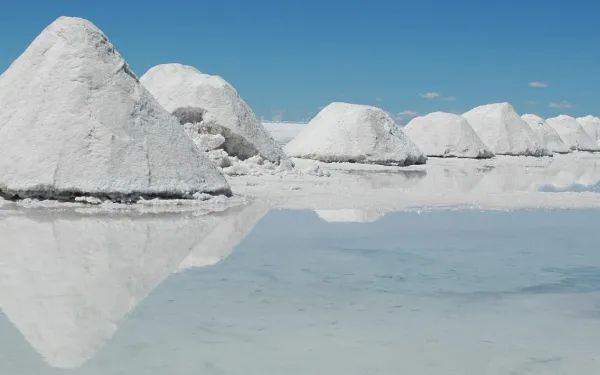
Lithium unveiled: Origins, extraction and environmental implications
One of the paradoxes of the energy transition is that it replaces the use of fossil fuels with mineral resources whose extraction and refining can have negative impacts on ecosystems, species and communities. This is happening with lithium, a mineral that has traditionally been used in glass and ceramics to provide greater adhesion and hardness, but is now being used primarily to make the batteries required by technologies that eliminate or reduce the use of fossil fuels. This has led to an increase in its demand. The serious social and environmental impacts of its extraction have been hidden or minimized. What makes lithium special? Lithium is a mineral in high demand due to its unique properties: It is the lightest metal with the highest electrochemical potential. It has a high energy storage capacity. It is malleable, so it can be adapted to different sizes, shapes and designs. These qualities make it a key material in the manufacture of batteries for cell phones, computers and, most importantly, electric vehicles. Lithium is considered key to the energy transition because it can be used to store non-conventional renewable energy, such as wind and photovoltaic power. Where it is: The so-called "lithium triangle"? The primary sources of lithium are salt flats, which are wetlands covered with a saline crust that contain brines, bodies of water in which many salts and elements, including lithium, are dissolved. Salt flats are attractive to the mining industry because of the relative technical ease of exploitation, low operating costs and low energy requirements to extract lithium from them compared to other sources. Worldwide, the salt flats of Argentina, Bolivia and Chile account for 54 percent of lithium resources (potentially mineable material). In addition, Argentina and Chile hold 46 percent of the world's lithium reserves (the portion of known resources with a high level of confidence and proven economic viability). The mining industry has dubbed the region where the mineral is concentrated the "Lithium Triangle" - because that is all they see there - which includes northeastern Argentina, northern Chile and southern Bolivia. But there is much more than lithium in this region. There are also communities, ecosystems and species that depend on these salt flats. The region's inhabitants are engaged in small-scale ranching and subsistence agriculture, activities that require water, an already scarce resource in these latitudes. How is lithium mined from the salt flats? The procedure is as follows: The salt flat is drilled. The brine is poured into large pools or basins. Wait for the water to evaporate so that the lithium concentration increases. When the concentration is sufficient, the brine is sent to an industrial plant. The brine is chemically treated to produce lithium carbonate, which is marketed for battery production. Lithium extraction, especially by this method, involves huge consumption and loss of water because: Water is lost in pumping brine. Evaporation in ponds requires two million liters of water for every ton of lithium produced. Water is also needed in the final processes to obtain lithium carbonate and separate it from the rest of the compound. Lithium mining is threatening South America's salt flats, which are Andean wetlands, affecting local water availability and threatening the survival of communities and species living around these fragile ecosystems. The energy transition is urgent, but it must be equitable and not at the expense of other natural resource extraction that endangers people and the environment. sources -Maritza Tapia, “Claves del litio: el metal más liviano y con mayor potencial electroquímico”, Universidad de Chile. -Heinrich Böll Stiftung Colombia, “Litio: los costos sociales y ambientales de la transición energética global”. -Florencia Ballarino, “¿Qué es el litio, para qué sirve y de dónde se extrae en la Argentina?”, Chequeado. -Wetlands International, “El impacto de la minería de litio en los Humedales Altoandinos”. -Rodolfo Chisleanchi, “‘Triángulo de litio’: la amenaza a los salares de Bolivia, Chile y Argentina”, Mongabay Latam. -U.S. Geological Survey, Mineral Commodity Summaries, January 2023, “Lithium”.
Read more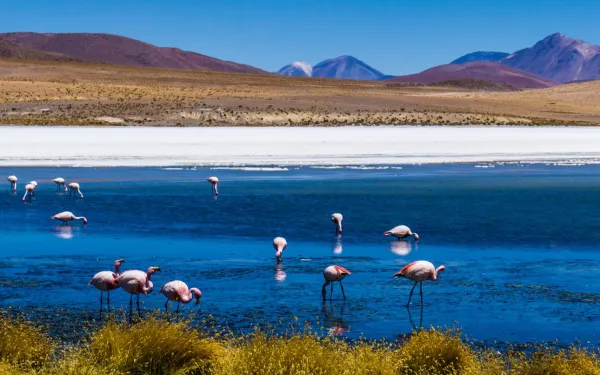
The Alliance for the Andean Wetlands brings together organizations for the protection and conservation of wetlands
The alliance seeks to protect the water, biodiversity, territories and ways of life that depend on these ecosystems in Latin America, especially in Argentina, Bolivia and Chile. With the aim to promote the protection and conservation of wetlands -as well as the water, biodiversity, territories and livelihoods of indigenous and peasant communities that depend on them- the Alliance for Andean Wetlands (Alianza por los Humedales Andinos) brings together the Fundación Ambiente y Recursos Naturales (FARN) and the PUCARÁ Assembly (Pueblos Catamarqueños en Resistencia y Autodeterminación), of Argentina; the Centro de Documentación e Información de Bolivia (CEDIB) and Empodérate, of Bolivia; ONG FIMA, Defensa Ambiental and Fundación Tantí, of Chile; and the Interamerican Association for Environmental Defense (AIDA), a regional organization.The Andean wetlands - including salt flats, lakes and lagoons - are recognized worldwide as ecosystems of high environmental and social significance. They are also extremely fragile due to their characteristics, whose central element is water, a common good that controls the environment and wildlife. Their vulnerability also rises from the threats they face, including the climate crisis and the negative impacts of extractive activities such as the mining of lithium, copper and other minerals considered "critical" for the transition to new forms of energy generation.In this sense, the increase in demand for lithium in the global north has set in motion an accelerated process of extraction and production at a global level, focused on regions rich in this mineral, such as the Andean salt flats of Argentina, Bolivia and Chile, which are home to more than 53% of proven global reserves.From November 30 to December 12, representatives from nearly 200 countries will meet in Dubai, United Arab Emirates during the twenty-eighth United Nations Climate Change Conference (COP 28) to continue advancing the implementation of the Paris Agreement, which seeks to strengthen the global response to the climate emergency.The protection of wetlands is crucial in this task because they are ecosystems that act as natural carbon sinks, helping to mitigate the crisis.Accelerating the energy transition will be one of the main lines of action at COP 28Faced with this global trend, the alliance promotes a just, participatory and popular socio-ecological transition with a long-term vision, prioritizing integrated water management under a socio-environmental and climate justice approach. Thus, it supports and accompanies local communities and organizations in the care of Andean wetlands and in the construction of socioeconomic alternatives that go beyond mining extractivism.The alliance also seeks to ensure the participation of communities and their access to complete, truthful and transparent information, as well as to provide information to the global society - involving organizations, States and the private sector - highlighting the value of the Andean wetlands and the multiple threats they face.To achieve its objective, the alliance employs pedagogical, legal, research, advocacy, communication and mobilization strategies collectively and in dialogue with communities and organizations. Recognizing the differentiated impacts of the climate crisis on women, girls, sexual dissidents and other vulnerable groups, the alliance incorporates a gender perspective in all its activities. Press contacts:Víctor Quintanilla, AIDA (regional), [email protected], +521 5570522107Carlos Ulloa Fuentes, Fundación Tantí (Chile), [email protected] +569 37614815Rocío Wischñevsky, FARN (Argentina), [email protected], +541159518538Manuel Fontenla, Asamblea PUCARÁ (Argentina), [email protected], +54 9 3834790609Faviola Rivera Seifert, Empodérate (Bolivia), [email protected], +591 77129989Oscar Campanini, CEDIB (Bolivia), [email protected], +591 70344801
Read more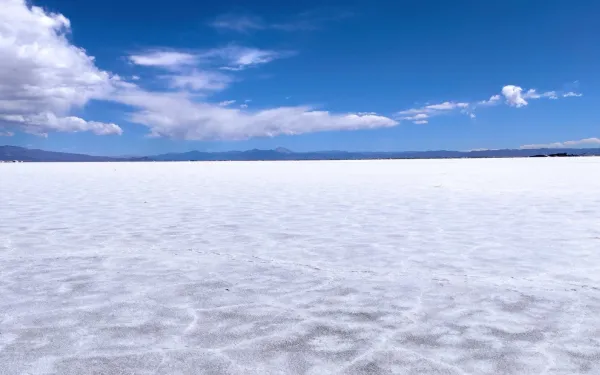
"Water is worth more than lithium": Resistance against an unjust energy transition
"Water is worth more than lithium" is the slogan under which social organizations, trade unions and indigenous peoples have been expressing their resistance against the constitutional reform in Jujuy, a province in northern Argentina. They claim that this reform, promoted by Governor Gerardo Morales, doesn’t respect international regulations on the rights of indigenous peoples, including Convention 169 of the International Labor Organization (ILO), which establishes the right to free, prior and informed consultation of peoples on projects to be developed in their ancestral territories. In this sense, this reform would have been approved on June 16, in a short process that didn’t allow for broad public participation and deliberation and in which there was no proper consultation with indigenous peoples. Furthermore, the constitutional text represents a significant step backwards on environmental and human rights issues; it also opens the doors to mega-mining -including lithium mining- under the guise of energy transition, criminalizes protests and allows the privatization of both water and indigenous lands. Indigenous communities have claimed that the indiscriminate advancement of lithium mining projects in the province will exacerbate the water crisis currently affecting the area. With increasing international demand for lithium - considered a strategic resource due to its energy storage capacity (useful for the battery and electric vehicle industries) - global mining and production has accelerated in recent years, with a focus on regions rich in the mineral, such as the Andean salt flats of Argentina, Bolivia and Chile, where more than 53% of the world's proven reserves are located. Lithium is found in brines, pegmatites and sedimentary rocks, although it’s easier to from the former. However, extraction requires large quantities of water and takes place in fragile ecosystems such as salt flats, which suffer from water-deficiency and are severely affected by the impacts of the climate crisis. The social resistance to the constitutional reform in Jujuy is also a resistance to a global trend that, in the name of an energy transition that is far from being just, seeks to perpetuate extractivist models that violate human rights. Human rights violations in Jujuy AIDA - along with seven other civil society organizations with extensive experience in environmental and human rights defense - was part of an international mission that visited Jujuy from 21 to 25 August to learn first-hand about possible violations of the right to protest and participation in the context of the constitutional reform. The mission visited the main protest centers and documented testimonies from people from indigenous groups and communities, farmers' associations, trade unions and human rights organizations, as well as social leaders, teachers, lawyers and provincial authorities. Preliminary conclusions indicate that: Even when indigenous peoples and their communities demanded participation in the constitutional reform, it was carried out without an exhaustive deliberative process. Despite climate crisis and water scarcity, the reform doesn’t properly address integrated basin management and ecosystems conservation. The reform seems to favor large-scale industrial, agricultural and livestock use of water resources and opens the doors to concessions that can lead the privatization of water, damaging ecosystem cycles and failing to protect small-scale agriculture and livestock, vital to the existence of native communities. There is a repeated and manifest concern from indigenous communities about the negative impacts of mining, particularly lithium extraction projects. Testimonies report cases of repression of social protest, arbitrary arrests, harassment and alleged torture by the police of people involved in resistance, as well as disproportionate use of force. The mission is currently systematizing the information collected in order to prepare recommendations oriented that will highlight the complex situation in the province of Jujuy and contribute to a dialog that will allow for a better resolution of the social conflict and respect for human rights. What kind of transition does the constitutional reform in Jujuy point to? Addressing this question is important to understand that a just energy transition is incompatible with a context in which private economic interests prevail over social and environmental considerations, and in which government actions ignore the impacts of lithium extraction and the legitimate claims of local communities to manage their water and territory. Jujuy is home to over 12 indigenous peoples and around 400 communities -whose members have dedicated for millennia to salt extraction in Salinas Grandes, the fourth largest salt flat in South America. Their connection to water is sacred and ancient. It’s a cultural connection that is threatened by the exploitation of lithium, which jeopardizes the availability of an extremely scarce resource. "To extract one ton of lithium (through evaporation), 2 million liters of water are evaporated from the wells, that is, 2000 tons of water that cannot be re-circulated," says Ingrid Garcés, professor in the Department of Chemical Engineering and Mineral Processes at the University of Antofagasta, Chile. This "is profitable for the industry because it means a process without energy costs, but unfortunately it has the cost of losing water from a system that is not renewable, especially in a desert region" (like the salt flats). The constitutional reform in Jujuy doesn’t stipulate an order of priority for water use, but puts human and industrial consumption on the same level. Limited access to water is a central concern in the province, as there are few groundwater resources to meet the demand for water for human and domestic use, as well as for small-scale agricultural and livestock production. An urgent change of course The water crisis is one of the most pressing crises worldwide and is intrinsically linked to the climate crisis and the need to switch to alternative energy production. Extreme weather patterns - such as prolonged droughts, floods and more intense storms – have a direct impact on the availability and distribution of water in different regions of the world, leading to a decline in water resources. In this scenario, competition for water use intensifies and requires social water management for the benefit of communities. This is the only way to address the situation in terms of sustainability and environmental justice. The extraction of lithium to satisfy corporate interests is an example of the paradox that tackling the climate crisis comes at the expense of communities and ecosystems. The lack of fair and equitable distribution of benefits and the externalization of environmental and social costs underscores the urgency to rethink and radically transform our relationship with natural resources and the way we address the climate crisis.
Read more